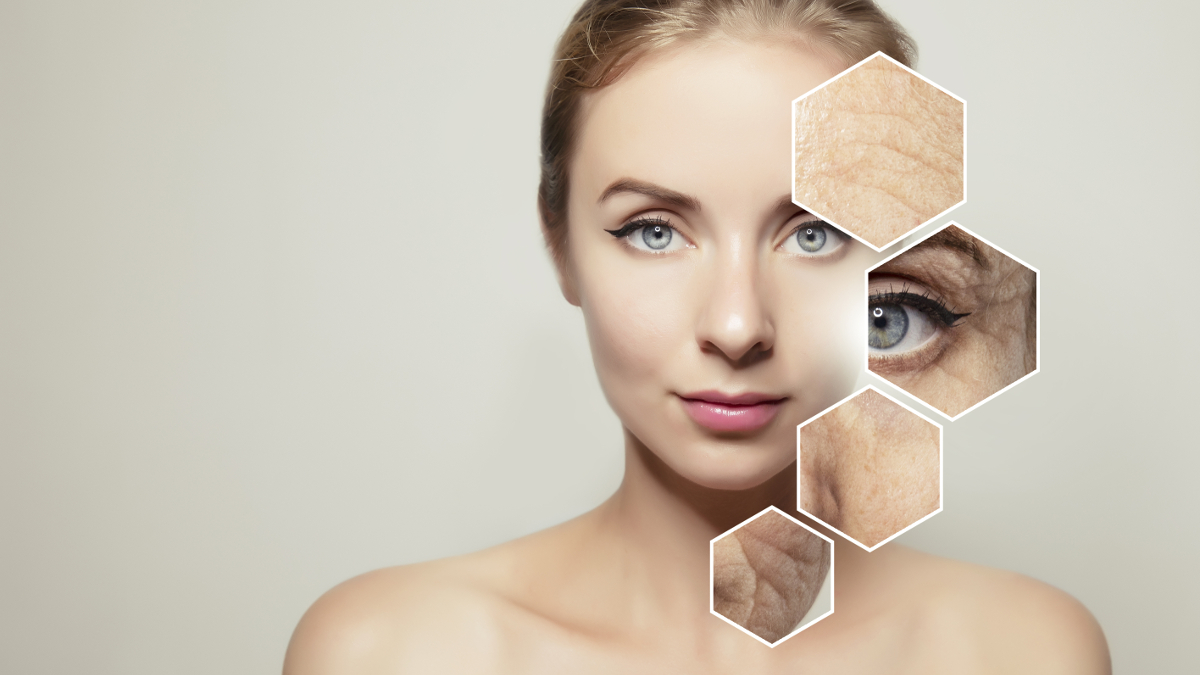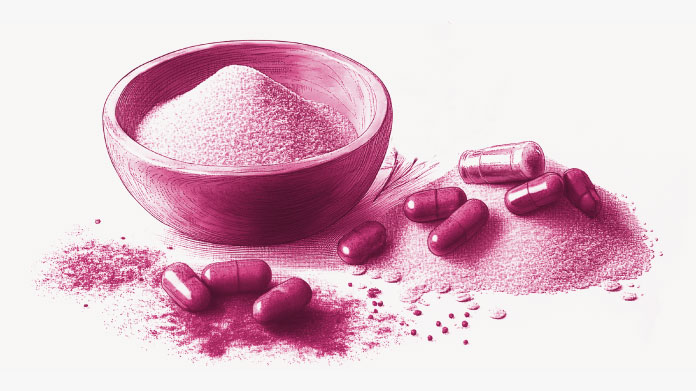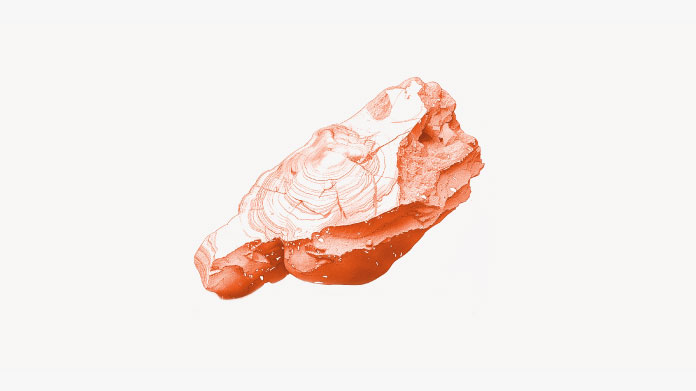How can you increase your collagen production naturally?
Collagen is an essential protein present in all the body’s tissues. In particular, it plays a key role in keeping the skin supple and hydrated. Here’s a brief overview of collagen and the ways of boosting its production.

The benefits of collagen
Collagen is the most abundant protein in the human body. It is found in the skin, tendons, bones, cartilage and muscles … A structural protein, it forms a natural framework which allows the body’s tissues to remain supple when subjected to mechanical and chemical tension.
It thus supports and protects the body on a number of levels, helped by other proteins such as elastin and keratin.
There are many different forms of collagen, but the three main ones are:
- type 1 collagen, present in skin and bones;
- type 2 collagen, in joints;
- type 3 collagen, in muscles and arteries.
What happens when collagen levels are too low?
A lack of collagen will inevitably affect the body as a whole. Inadequate collagen levels may have a pathological cause or be the result of aging. Collagen production declines as we get older: the effects of this are seen mainly in the skin, with those famous visible signs of aging: sagging, wrinkles and fine lines… But a lack of collagen also affects the health of our joints, bones and muscles …
That’s why it makes sense to try and stimulate the body’s collagen production, especially as there’s precious little of it available in the diet (sources include egg yolk, bone broth, gelatine, fish skin ...)
Foods and actions which promote collagen production
Certain foods, such as salmon, garlic and avocado are, however, thought to support collagen production. Good hydration may also help to maintain healthy levels of this protein in the body.
But above all, it’s vitamin C which is known to play a role in collagen formation: in doing so, it helps maintain healthy skin, cartilage, blood vessels, gums, teeth and bones (1). Vitamin C is found in many foods: citrus fruit, berries, kiwi fruit, green leafy vegetables … (2) and is also available in supplement form. The liposomal form of vitamin C is especially beneficial because of its high bioavailability.
There are other ways of activating collagen production such as massaging your face (for the collagen in facial skin) and ensuring you get a good night’s sleep.
Eliminate collagen’s natural enemies
Aging is not alone in causing the body’s collagen production to diminish. Several factors can have an adverse effect by generating large numbers of free radicals. Oxidative stress is a major threat to collagen.
You can take the following simple steps to reduce your oxidative stress:
- stop smoking, as it is an important source of free radicals (3);
- avoid direct sun exposure, as UV rays are particularly harmful (4);
- lower your stress levels, as it is known to have a negative effect on collagen (5);
- eat a balanced diet, and especially keep in mind that sugar is the sworn enemy of collagen (6).
These dietary supplements are a direct source of collagen
Do you want to benefit from a direct supply of collagen? You have the choice of several dietary supplements depending on your individual needs:
- Marine Collagen, # a source of marine type 1 collagen, excellent for the skin ;
- Tendo-Fix: a natural mix of several types of collagen, specially formulated to help keep tendons supple ;
- UC II®, an excellent source of type 2 collagen, particularly good for promoting joint health ;
- Daily Beauty, your daily beauty aid which contains, amongst others, hydrolyzed collagen peptides.
As you can see, you’re spoilt for choice when it comes to options for supporting your collagen levels.
References
- EFSA Panel on Dietetic Products, Nutrition and Allergies (NDA); Scientific Opinion on the substantiation of health claims related to vitamin C and protection of DNA, proteins and lipids from oxidative damage (ID 129, 138, 143, 148), antioxidant function of lutein (ID 146), maintenance of vision (ID 141, 142), collagen formation (ID 130, 131, 136, 137, 149), function of the nervous system (ID 133), function of the immune system (ID 134), function of the immune system during and after extreme physical exercise (ID 144), non‐haem iron absorption (ID 132, 147), energy‐yielding metabolism (ID 135), and relief in case of irritation in the upper respiratory tract (ID 1714, 1715) pursuant to Article 13(1) of Regulation (EC) No 1924/2006 on request from the European Commission. EFSA Journal 2009; 7( 9):1226. [28 pp.].
- Table Ciqual. ANSES. Consulté en août 2020.
- Knuutinen A, Kokkonen N, Risteli J, et al. Smoking affects collagen synthesis and extracellular matrix turnover in human skin. Br J Dermatol. 2002;146(4):588-594. doi:10.1046/j.1365-2133.2002.04694.x
- Bosch R, Philips N, Suárez-Pérez JA, et al. Mechanisms of Photoaging and Cutaneous Photocarcinogenesis, and Photoprotective Strategies with Phytochemicals. Antioxidants (Basel). 2015;4(2):248-268. Published 2015 Mar 26. doi:10.3390/antiox4020248
- V. Kahan, M.L. Andersen, J. Tomimori, S. Tufik, Stress, immunity and skin collagen integrity: Evidence from animal models and clinical conditions, Brain, Behavior, and Immunity, Volume 23, Issue 8, 2009, Pages 1089-1095
- Danby FW. Nutrition and aging skin: sugar and glycation. Clin Dermatol. 2010;28(4):409-411. doi:10.1016/j.clindermatol.2010.03.018
Keywords
4 Days
Easy to navigate site
Easy to navigate site, had what I was searching for, good price. easy order-check out
James Tucker
10 Days
My skin is clearing up nicely!
Pretty good for my skin so far.
Christian
12 Days
The new packaging is excellent
The new packaging is excellent - finally! No more squashed boxes and torn envelopes.
GORAN
13 Days
Great Product
Great Product
Larry Garrett
18 Days
Quick shipping
Quick shipping; good price. No issues!
Mary McCarty
19 Days
Thr product is very good and is helping…
Thr product is very good and is helping me on my health. Then is always on time
LUGO Luz
22 Days
Buying was fine
Buying was fine. I had problems with the website not recognizing my login info, and had to call to get it fixed. Other than that, everything was good.
David S. Clark
22 Days
Your super maca and super ginseng are…phenomenal
Your super maca and super ginseng are phenomenal supplements that compliment each other when taking them together. Fantastic feeling of well-being and lots of mid day energy without the crash.
Keith Mason
25 Days
I have had amazing results with every…
I have had amazing results with every supplement I've purchased. I am extremely satisfied with this company
kirstin Torres
25 Days
Fine products
Fine products . They are on the leading edge of online supplements. The only issue -so far-is they sometime run out of subscription items.
Jason Argos
27 Days
The ordering process is very user…
The ordering process is very user friendly and the products always come in a timely manner.
CARTER Rhonda
28 Days
The price for Dr
The price for Dr. Pero's AC-11 is reasonable and in line with his views. (my former colleague). Keep it pure.
CAMPBELL Clayton
31 Days
Right on every time.
Right on every time.
Arthur Nicholas
34 Days
They are cheaper than everyone else and…
They are cheaper than everyone else and the shipping was fast. Great company.
Patricia Adams
41 Days
Availability of quality health…
Availability of quality health supplements and it's wide variety is impressive. Ordering is seamless and shipping even during the holidays is well streamlined.
Mohamad Hussein




